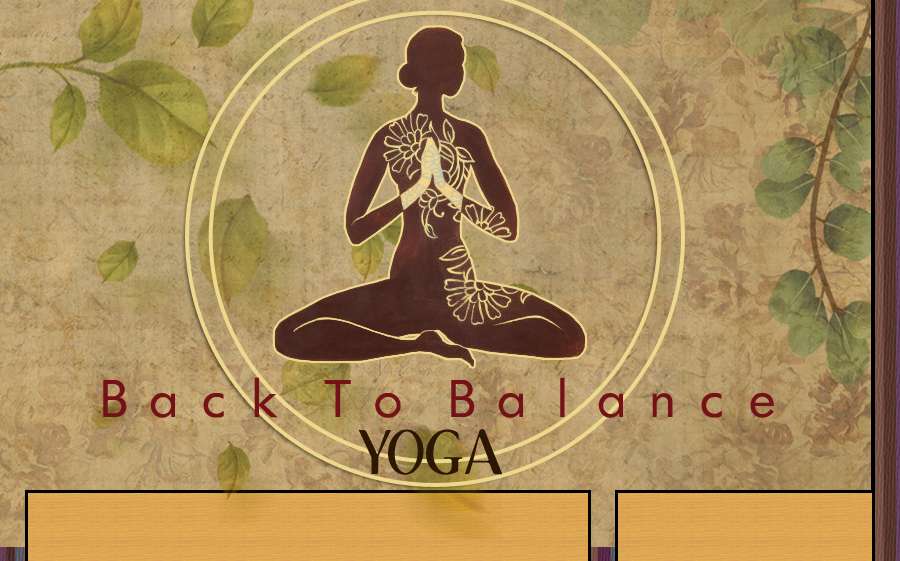Is Yoga a Religion?
Yoga is not a religion but a philosophy that has endured over 5,000 years. Because of it's roots in India, yoga has often been associated with the Hindu religion, but it is an independent tradition with physical and psychological processes that have no connection with religious beliefs.
Yoga does not meet the traditional definitions of a religion, but there is a set of ethics associated with it.
These principals include the 5 Yamas which are;
Non Violence
Truthfulness
Non Stealing
Chastity
Non Greed
Also there are the 5 Niyamas which are;
Purity
Contentment
Self Discipline
Self Study
Centering On The Divine
It is not necessary to surrender your own religious beliefs to practice Yoga.
Yoga is a spiritual science which is universal in its approach and can be practiced regardless of your religious faith.
What Is Hatha Yoga?
Hatha Yoga refers to a set of physical excesses (known as asanas or postures) and sequences of asanas, muscles designed to align your skin, muscles and bones.
The postures are also designed to open the many channels of the body- especially the main channel, the spine- so that energy can flow freely. Hatha is also translated as Ha meaning "sun" and Tha meaning "moon". This refers to the balance of masculine aspects- active, hot, sun - and feminine aspects- receptive, cool, moon- within all of us.
Hatha yoga is a path of creating balance and uniting opposites. In our physical bodies we develop a balance of strength and flexibility. We also learn to balance our effort and surrender within each pose.
Hatha yoga is a powerful tool for self transformation. It asks us to bring our attention to our breath, which helps us to still the fluctuations of the mind and be more present in the infolding of each moment.
What's the difference between Yoga and normal exercise?
Traditional exercise is goal oriented. Yoga, by contrast, is a process. The idea is to focus on what you are doing and how you feel as you do it. In exercise, you fail if you miss your goal. In yoga, you succeed by trying. Unlike stretching or fitness, yoga is more than just physical postures which is just one aspect of yoga.
Even within the physical practice, yoga is unique because we connect the movement of the body and the fluctuations of the mind to the rhythm of our breath. Connecting the mind, body, and breath helps us to direct our attention inward.
Through this process of inward attention, we learn to recognise our habitual thought patterns without labeling them, judging them, or trying to change them. We become more aware of our experiences from moment to moment. The awareness that we cultivate is what makes yoga a practice, rather than a task or a goal to be completed. Your body will most likely become much more flexible by doing yoga, and so will your mind.
I'm not very flexible, can I still do Yoga?
Yes! You are a perfect candidate for yoga. In fact, you are just the person who should be doing yoga. Many people think that they need to be flexible to begin yoga, but that's a little bit like thinking that you need to be able to play tennis in order to take tennis lessons. Come as you are and you will find that yoga practice will help you become more flexible. Just be careful to start slowly and breathe properly. Soon you will find yourself becoming more flexible, relaxed, energetic and aware.
I'm 55. Is that too old to do Yoga?
There is no upper age limit for yoga practice. You can start even at 30 or 60 years of age and can continue up to 100 years or more.
Almost anyone can do Yoga, and almost everyone who does will find an increase in flexibility, strength, coordination, body awareness, and concentration.
Yoga is non-competitive. It teaches you to learn how your body works and maximise it's potential. Yoga works with your body, it does not impose a system of goals towards which you must push yourself, but allows you to discover what you are capable of.
What Does Om mean?
Om is a mantra or vibration that is traditionally chanted at the beginning and end of yoga sessions. It is said to be the sound of the Universe. What does that mean? Somehow the ancient yogis knew what scientists are telling us- that the entire universe is moving and that nothing is ever solid or still.
Everything that exists pulsates, creating a rhythmic vibration that the ancient yogis acknowledge with the sound of "Om". We may not always be aware of this sound in our daily lives but we can hear it in the rustling of the autumn leaves, the waves on the shore, the inside of a seashell. Chanting Om allows us to recognize our experience as a reflection of how the whole Universe moves - the setting sun, the rising moon, the ebb and flow of the tides, the beating of our hearts.
As we chant Om, it takes us for a ride on this universal movement, through our breath, our awareness and our physical energy, where we begin to sense a bigger connection that is both uplifting and soothing.
